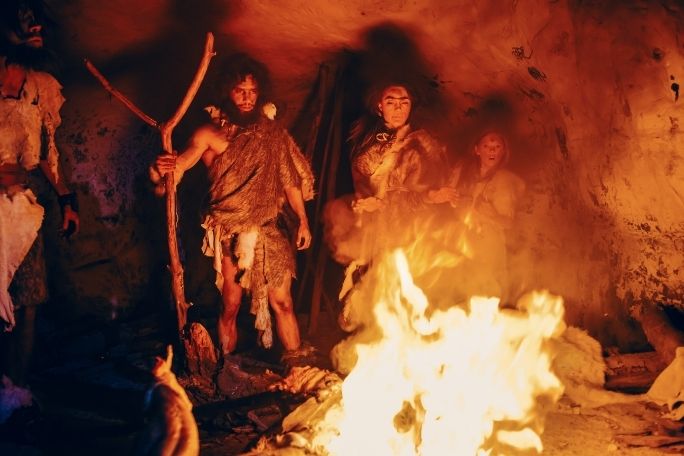Lesson summary
Students explain their understanding of the role of collective learning in human evolution by writing a short story aimed at demonstrating how collective learning has contributed positively to human achievements and evolution.
Learning intentions:
Students will...
- understand the role that collective learning has played in human evolution.
Success criteria:
Students can...
- explain why human evolution isn't just a measure of advancement in physical traits, but can also be measured by human achievement
- communicate complex scientific subjects.
Lesson guides and printables
Lesson details
Curriculum mapping
Australian Curriculum (v9.0) content descriptions:
Science:
Students learn to:
- use the theory of evolution by natural selection to explain past and present diversity and analyse the scientific evidence supporting the theory (AC9S10U02)
Syllabus Outcomes: SC5-9WS, SC5-14LW.
General capabilities: Critical and Creative Thinking.
Relevant parts of Year 10 achievement standards:
By the end of Year 10 students explain the processes that underpin heredity and genetic diversity and describe the evidence supporting the theory of evolution by natural selection. They sequence key events in the origin and evolution of the universe and describe the supporting evidence for the big bang theory.
Resources required
- A device capable of showing a video
- Factsheet - Human evolution factsheet (optional)
- Factsheet - Phylogenetic tree human origins (optional)
- Factsheet - Where do you come from (optional)
- Student Worksheet - one copy per student
- Writing materials - pen and lined paper
Skills
This lesson is designed to build students’ competencies in the following skills:
- communication
- creativity
- critical thinking
Additional info
Level of teacher scaffolding: Low - oversee activity.
This is an original Cool+ lesson.
Related professional learning
Quick summary: Gain an overview of the Big History story, why it is important for Primary education and the cross-curriculum priority of Sustainability, and how to apply a critical, inquiry-based perspective to science education across all areas of the curriculum. There will be opportunities to learn about a range of tools, tips, lessons and resources that focus on a multi-disciplinary approach.


Welcome back!
Don't have an account yet?
Log in with:
By signing up to Cool.org you consent and agree to Cool's privacy policy to
store, manage and process your personal information. To read more, please see
our privacy policy here(Opens in new tab).
Create your free Cool.org account.
Many of our resources are free, with an option to upgrade to Cool+ for premium content.
Already have an account?
Sign up with:
By signing up to Cool.org you consent and agree to Cool's privacy policy to
store, manage and process your personal information. To read more, please see
our privacy policy here(Opens in new tab).